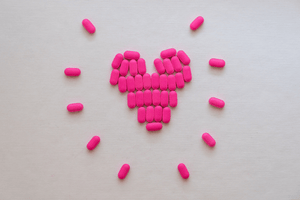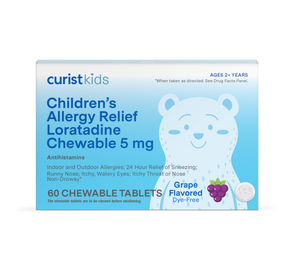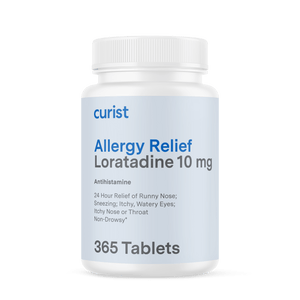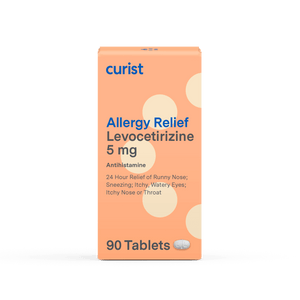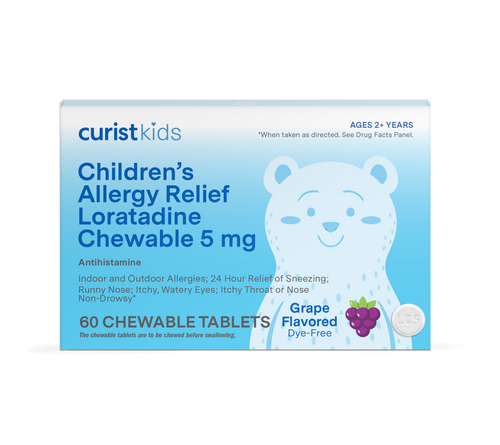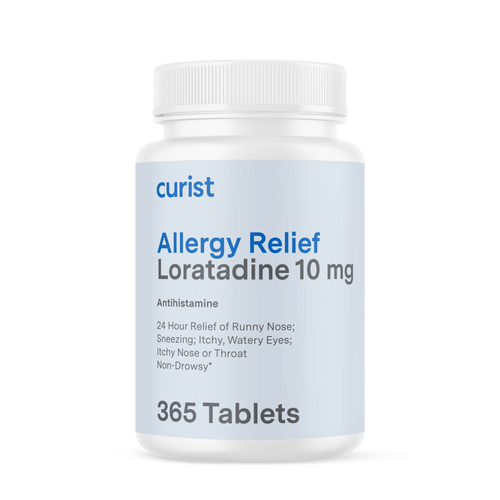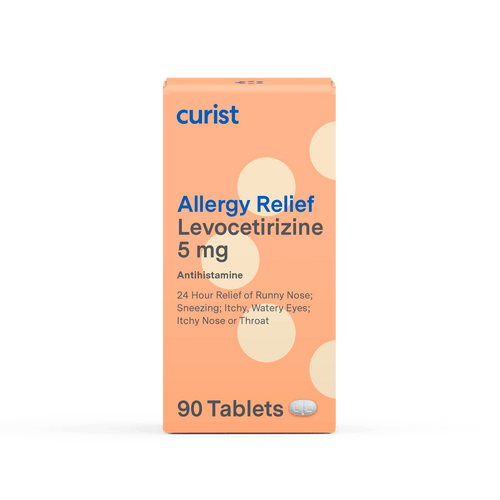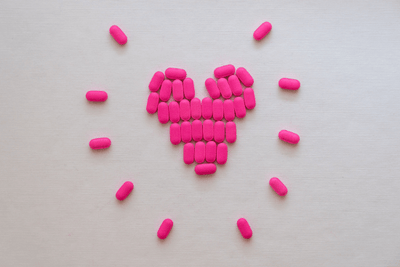By Cindy Diep, The University of Texas at Austin College of Pharmacy
Curist delivers over-the-counter medicines to your door at a fraction of the price of traditional brands. We hope everyone stays safe and healthy during this time.
Allergies frequently affect children, leading to symptoms such as sneezing, itching, and congestion that can greatly interfere with their daily activities. To alleviate these symptoms, many parents rely on over-the-counter antihistamines, but selecting the most suitable option can be challenging. This article compares Claritin and Benadryl, evaluating their effectiveness and potential side effects to determine which might be more appropriate for managing allergy symptoms in children.
Are Claritin and Benadryl the Same Thing? What Are the Differences Between Claritin vs Benadryl for Kids?
No, Claritin and Benadryl are not the same thing. Claritin and Benadryl are both antihistamines used to relieve allergy symptoms, but they differ in how they work and their specific characteristics.
Claritin is a second-generation antihistamine containing the active ingredient loratadine. It provides long-lasting, 24-hour relief from allergy symptoms like sneezing, runny nose, and itchy eyes without causing drowsiness, making it suitable for daily use in managing ongoing allergies.
On the other hand, Benadryl is a first-generation antihistamine with diphenhydramine as its active ingredient. It offers fast-acting relief but is known for its sedative effects, often leading to drowsiness. It typically provides relief for 4-6 hours and is generally used for short-term management of acute allergy symptoms.
In summary, Claritin is ideal for daily, non-drowsy allergy control, while Benadryl is better suited for quick, short-term relief, though it may cause significant drowsiness.
Which Is Stronger for Allergies: Benadryl vs Claritin?
Benadryl (diphenhydramine) is typically more potent and faster-acting than Claritin (loratadine) for alleviating allergy symptoms. As a first-generation antihistamine, Benadryl quickly crosses the blood-brain barrier, leading to rapid and powerful symptom relief. However, this also results in significant drowsiness.
Claritin, on the other hand, is a second-generation antihistamine that provides longer-lasting relief without causing sedation. Although it is less potent than Benadryl, its non-drowsy formula makes it more suitable for daily use to manage ongoing allergy symptoms.
For quick, short-term relief, particularly for severe itching or hives, Benadryl is often more effective. In contrast, Claritin is generally preferred for long-term allergy management due to its 24-hour effectiveness and lack of sedative effects.
Is It OK to Give a Child Claritin and Benadryl Together? Can I Give My Child Claritin in the Morning and Benadryl at Night?
No, it is generally not recommended to give a child both Claritin (loratadine) and Benadryl (diphenhydramine) at the same time, as they are both antihistamines, and combining them can increase the risk of side effects or, in rare cases, lead to an antihistamine overdose.
However, in some cases, a healthcare provider may advise giving Claritin in the morning and Benadryl at night. This approach is sometimes used under medical supervision, but it is essential to consult with a pediatrician first to ensure it is safe and appropriate for your child.
Which Is the Best Antihistamine for Kids to Treat Seasonal Allergies: Claritin vs Benadryl?
For managing seasonal allergies in children, Claritin (loratadine) is usually the preferred choice over Benadryl (diphenhydramine). Its 24-hour, non-drowsy formula provides long-lasting relief and is convenient for daily use. In contrast, Benadayl acts quickly but causes drowsiness, making it more suitable for short-term relief of acute allergy symptoms rather than continuous management of seasonal allergies.
Which is Best for Food Allergies in Children: Benadryl or Claritin?
For food allergies, Benadryl (diphenhydramine) is typically the better option because it works quickly to alleviate acute symptoms like itching, hives, or swelling. As a first-generation antihistamine, it provides fast relief and is often recommended for mild to moderate allergic reactions to food. Claritin (loratadine) is less effective for sudden allergic reactions due to its slower onset of relief and is more suited for long-term allergy management rather than immediate relief.
However, if a child experiences severe food allergy symptoms, such as difficulty breathing or swelling of the face or throat, this may indicate an anaphylactic reaction, which is a medical emergency. Call 911 immediately for medical attention, and consult a pediatrician later for proper guidance in managing these food allergies in the future.
Which Allergy Symptoms Does Claritin Work Best For? Which Symptoms Does Allergy Benadryl Work Best For?
Claritin (loratadine) is most effective for allergy symptoms like sneezing, runny nose, itchy or watery eyes, and itchy throat. It is well-suited for managing ongoing seasonal allergies, as it provides long-lasting, non-drowsy relief.
Benadryl (diphenhydramine), on the other hand, is more effective for conditions like itching (including hives or rashes), mild swelling, and acute allergy symptoms. It is fast-acting and works well for short-term relief, particularly for nighttime allergy symptoms as it can cause drowsiness.
Does Claritin Make Kids Drowsy? Does Benadryl Make Kids Drowsy?
Children’s Claritin (loratadine) is typically non-drowsy and is less likely to make children feel sleepy because it is a second-generation antihistamine that does not easily cross the blood-brain barrier. Most children can take Claritin during the day without experiencing drowsiness.
In contrast, Children’s Benadryl (diphenhydramine) can make kids feel drowsy because it is a first-generation antihistamine that crosses the blood-brain barrier easily, leading to significant sedation. As a result, it is often used for nighttime allergy relief.
Can My Child Be Allergic to Benadryl?
Yes, while it is rare, a child can be allergic to Children’s Benadryl (diphenhydramine). Possible allergic reactions may include a rash or hives, itching or swelling, dizziness, and difficulty breathing. If you suspect your child is having an allergic reaction to Benadryl, stop giving the medication immediately and seek medical attention right away.


